Poems and Inspiration
Veterans For America welcomes your submissions
VFA.RPM@gmail.com
INSPIRATION
"GOOD POETRY IS GOOD THERAPY"
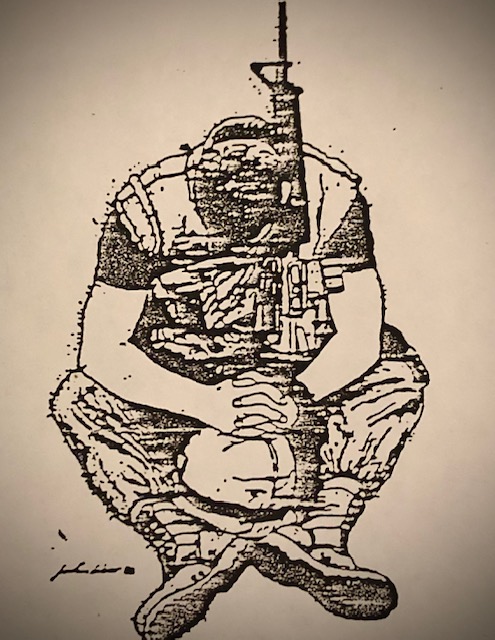
I heard a soldier as he knelt and prayed. And here is what he said:
God Bless our buddies who now lay dead,
We don't know what You have in mind,
but when You judge them, please be kind.
When they come before You, they'll be poorly dressed;
but they'll walk proudly, for they did their best.
Their boots will be muddy and their clothes will be torn,
but these are the clothes they have proudly worn.
Their faces will be unshaven and stained with blood;
their lips will be cracked and caked with mud.
Their hearts will be still and cold inside,
but they fought like hell and did so with pride.
So please, take care of them as they pass Your way,
for the price of freedom they've already paid.
This one last thing we ask in Your Name
Bless and keep them in your Heavenly Hall of Fame.
The Unkown Soldier
By Patty Aloot
Daughter of Col. John O'Grady
Presumed captured, North Vietnam, 1967
Some call me POW, some call me MIA
Some say I can't go home again, some say I chose to stay
I'm the unkown soldier, who you refuse to know
I'm the brother and the friend, you left so long ago
I'm the farmer from Missouri, a soldier from St. Paul
I'm my sister's hero, I'm a name on the Wall
I'm the unkown soldier, the one you left behind
I'm the country boy from Texas, who you never tried to find
I'm someone's long-lost daddy, my country's pride and joy
I'm a forgotten lover, and someone's little boy
I'm the ghost that haunts your past, I'm the living dead
I'm a sailor and a scholar, I'm the boy who lived next door
I'm the poet and the dropout, you sent to fight your war
I'm the unkown soldier who dreamed you'd rescue me
I'm the man who understands, only death will set me free
How could you just forget me, should I forget you, too
You must try and bring me home, for I belong to you
I'm the unkown soldier, the one for who you cried
I'm the one that you can't face, the one they told you died
Some call me POW, some call me MIA
I'm the unkown soldier, laid to rest in this Hollowed Grave
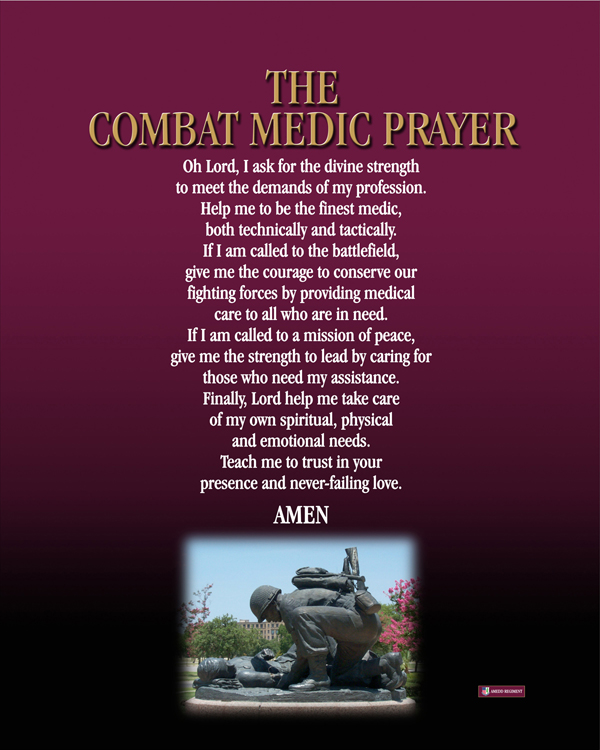
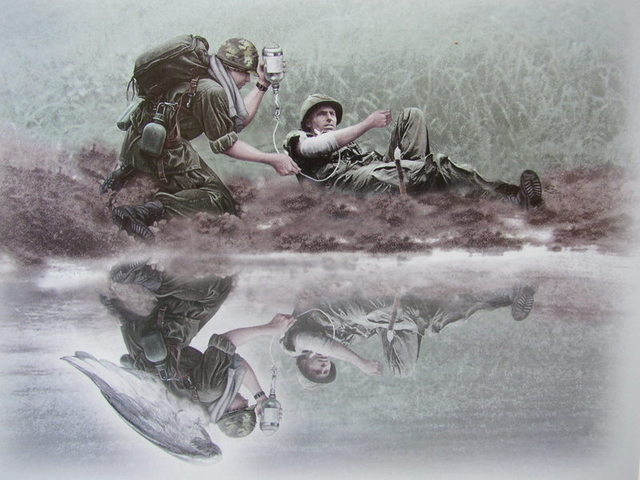
Treating Their Wounded
By Wayne Lund
You were just young medic's, very proud and it showed,
Going to serve in anohter war is what you've been told.
Riding in the choppers you've been searching all around,
When the enemy is spotted, you're quickly hitting the ground.
Once on the ground you begin moving out with the patrol,
Moving through the elephant grass, you're walking very slow.
Down in the valley, spreading out you're moving forward staying on line,
The enemy opens fire, several are hit by shrapnel from and enemy mine.
As medics you're treating the wounded while under fire, showing no fear,
Even though the fighting was considered to be dangerous and very near.
You combat medics showed no fear of the enemy fire, you were so brave,
Because of your medical skills, many soldiers lives, that day you did save.
Finally clearing out the enemy, the wounded were moved so they are protected,
The soldiers who survived say these medicd will forever be highly respected.
I'm the one they call "Doc"
By
Henry D. Penny, Jr. HMC(AC)USN
I shall not walk in your footsteps, but I will walk by your side.
I shall not walk in your image, I've earned my own title of pride.
We've answered the call together, on land and foreign land.
When the cry for help was given, I've been there right at hand.
Whether I am on the ocean, or in the jungle wearing greens,
Giving aid to my fellow man, be it Sailors or Marines.
So the next time you see a corpsman, and you think of calling him "squid",
think of the job he is doing, as those before him did.
And if you ever have to go out there, and your life is on the block,
Look at the one right next to you...
I'm the one called "Doc"
AMERICA'S PROMISE
If our Veterans are sick let us heal them
If our Veterans are hungry let us feed them
If our Veterans seek employment let us hire them
If our Veterans need a friend let us befriend them
If our Veterans need peace let us pray for them
If our Veterans need a home let us shelter them
For the Veterans who sacrificed for our freedom...
Let us show them
America is grateful
Rick P Martinez USMC Vietnam Veteran
Veterans For America, Founder
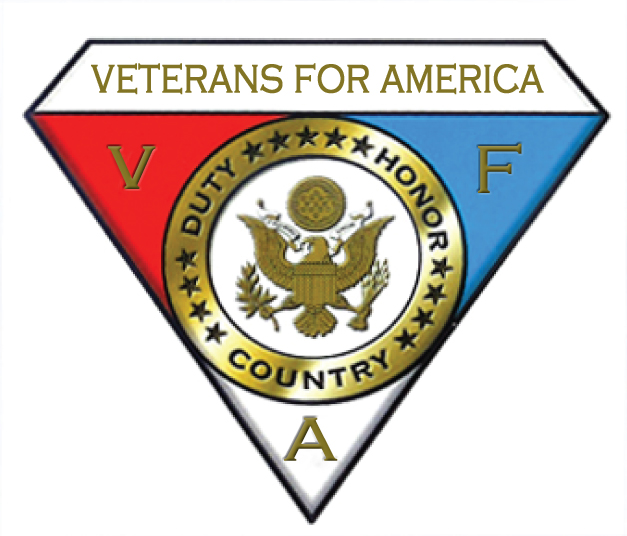
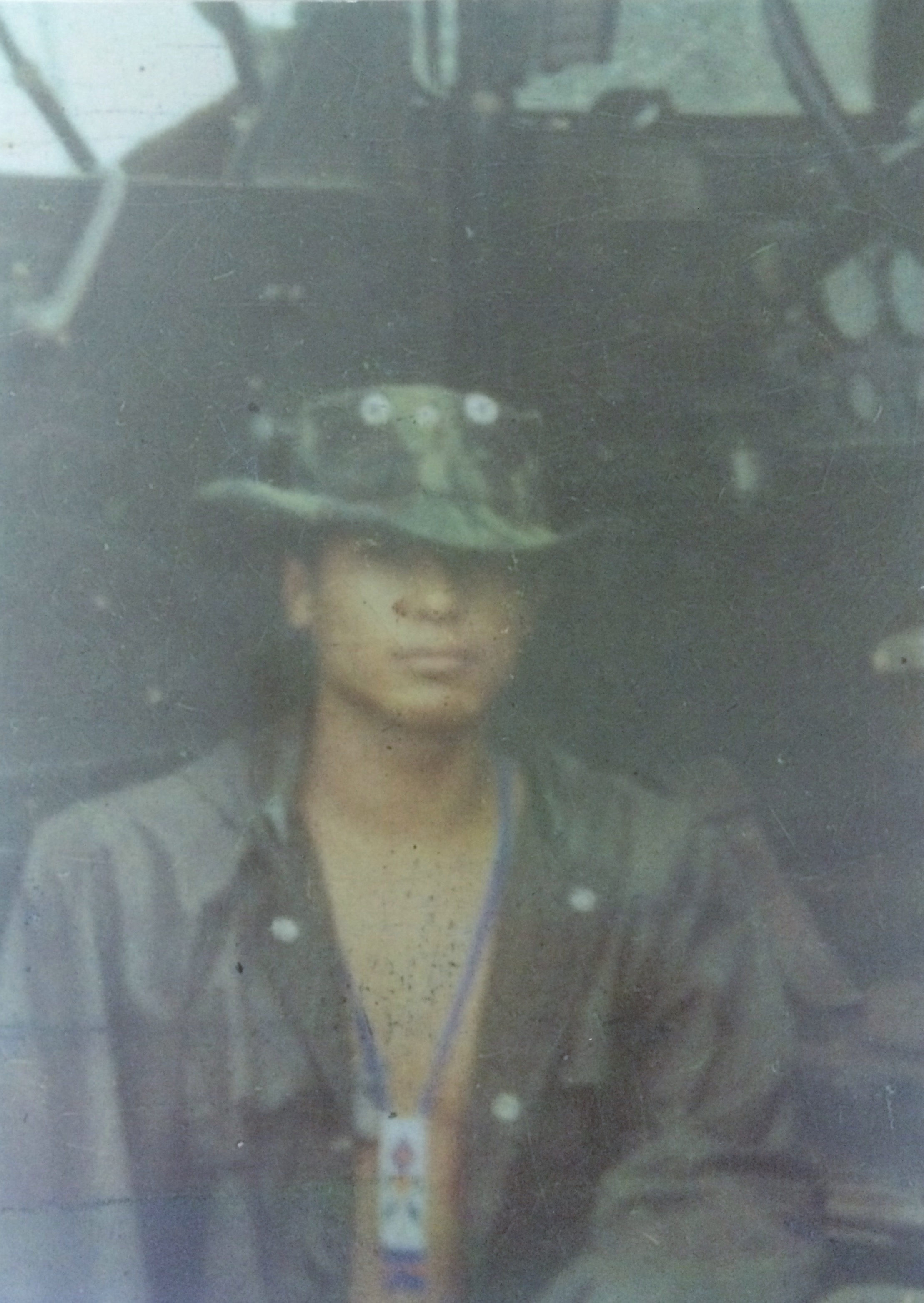
The day before John McCrae wrote his famous poem, “Flanders Fields”, during 1915, in WWI. A soldier, one of McCrae's closest friends was killed. Along withmany Comrades at Arms, his friend was buried in a makeshift soldier’s grave with a simple wooden cross in fields of wild poppies.
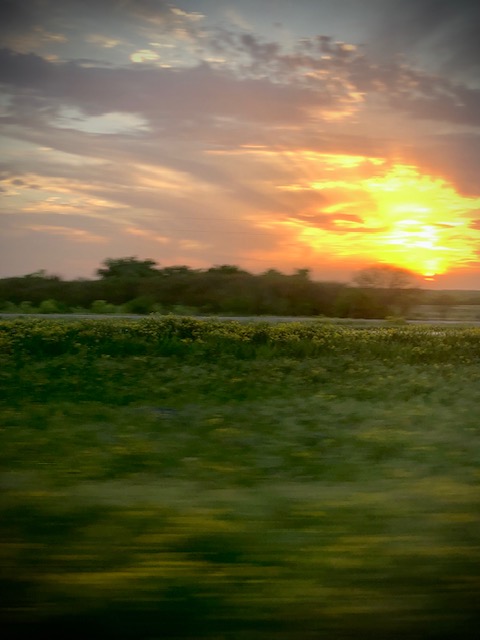
Flanders Fields
By: John McCrae
In Flanders fields the poppies blow Between the crosses, row on row, That mark our place; and in the sky The larks, still bravely singing, fly Scarce heard amid the guns below. We are the Dead. Short days ago We lived, felt dawn, saw sunset glow, Loved and were loved, and now we lie In Flanders fields. Take up our quarrel with the foe: To you from failing hands we throw The torch; be yours to hold it high. If ye break faith with us who die We shall not sleep, though poppies grow In Flanders fields.
In Flanders fields the poppies blow Between the crosses, row on row, That mark our place; and in the sky The larks, still bravely singing, fly Scarce heard amid the guns below. We are the Dead. Short days ago We lived, felt dawn, saw sunset glow, Loved and were loved, and now we lie In Flanders fields. Take up our quarrel with the foe: To you from failing hands we throw The torch; be yours to hold it high. If ye break faith with us who die We shall not sleep, though poppies grow In Flanders fields.
The Charge of the Light Brigade
By: Alfried, Lord Tennyson
Half a league, half a league, half a league onward, all in the valley of Death, rode the six hundred. “Forward, the Light Brigade! Charge for the guns!” he said.
Into the valley of Death, rode the six hundred.
“Forward, the Light Brigade!” Was there a man dismayed? Not though the soldier knew someone had blundered. Theirs' not to make reply, theirs' not to reason why, theirs' but to do and die. Into the valley of Death, rode the six hundred.
Cannon to right of them, cannon to left of them, cannon in front of them, volleyed and thundered; Stormed at with shot and shell, boldly they rode and well, into the jaws of Death, into the mouth of hell, rode the six hundred.
Flashed all their sabres bare, flashed as they turned in air, sabring the gunners there, charging an army, while all the world wondered.
Plunged in the battery-smoke right through the line they broke; Cossack and Russian reeled from the sabre stroke, shattered and sundered, then, they rode back, but not the six hundred.
Cannon to right of them, cannon to left of them, cannon behind them volleyed and thundered; Stormed at with shot and shell, while horse and hero fell.
They that had fought so well, came through the jaws of Death, back from the mouth of hell, all that was left of them, left of six hundred.
When can their glory fade? O the wild charge they made! All the world wondered.
Honour the charge they made! Honour the Light Brigade, Noble six hundred!
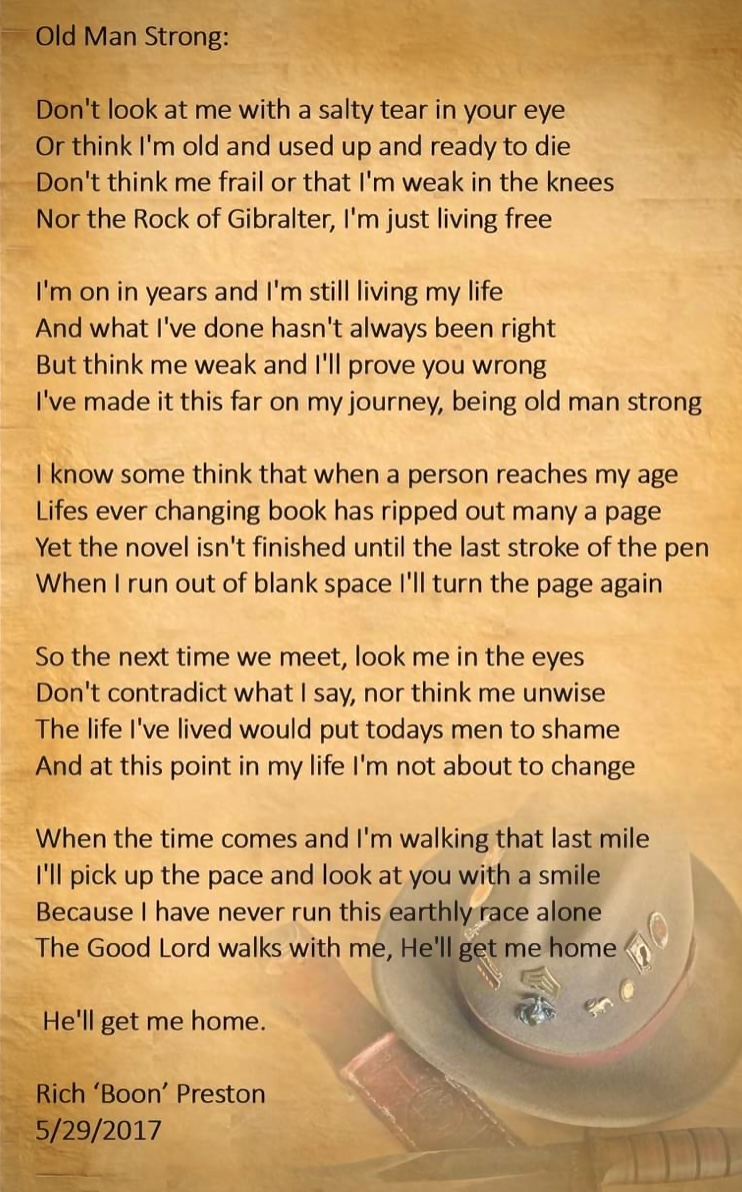
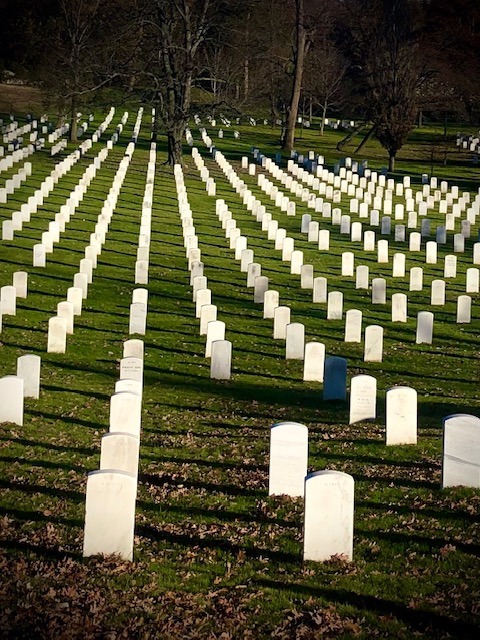
A Soldier Died Today
Author Unknown
He was getting old and paunchy
And his hair was falling fast,
And he sat around the Legion,
Telling stories of the past.
Of a war that he once fought in
And the deeds that he had done,
In his exploits with his buddies;
They were heroes, every one.
And 'though sometimes to his neighbors
His tales became a joke,
All his buddies listened quietly
For they knew whereof he spoke.
But we'll hear his tales no longer,
For ol' Bill has passed away,
And the world's a little poorer
For a soldier died today.
He won't be mourned by many,
Just his children and his wife.
For he lived an ordinary, very quiet sort of life...
He held a job and raised a family,
Going quietly on his way;
And the world won't note his passing,
Though a soldier died today.
When politicians leave this earth,
Their bodies lie in state,
While thousands note their passing,
And proclaim that they were great.
Papers tell of their life stories
From the time that they were young
But the passing of a soldier
Goes unnoticed, and unsung.
Is the greatest contribution
To the welfare of our land,
Some jerk that breaks his promise
And cons his fellow man?
Or the ordinary fellow
Who in times of war and strife,
Goes off to serve his country
And offers up his life?
The politician's stipend
And the style in which he lives,
Are often disproportionate,
To the service that he gives.
While the ordinary soldier,
Who offered up his all,
Is paid off with a medal
And perhaps a pension, small.
It's so easy to forget them,
For it is so many times
That our Bill's and Jim's and Johnny’s,
Went to battle, but we know,
It is not the politicians
With their compromise and ploys,
Who won for us the freedom
That our country now enjoys.
Should you find yourself in danger,
With your enemies at hand,
Would you really want some cop-out,
With his ever waffling stand?
Or would you want a soldier--
His home, his country, his kin,
Just a common soldier,
Who would fight until the end.
He was just a common soldier,
And his ranks are growing thin,
But his presence should remind us
We may need his like again.
For when countries are in conflict,
We find the soldier's part
Is to clean up all the troubles
That the politicians start.
If we cannot do him honor
While he's here to hear the praise,
Then at least let's give him homage
At the ending of his days.
Perhaps just a simple headline
In the paper that might say:
"OUR COUNTRY IS IN MOURNING,
A SOLDIER DIED TODAY."
The Star-Spangled Banner
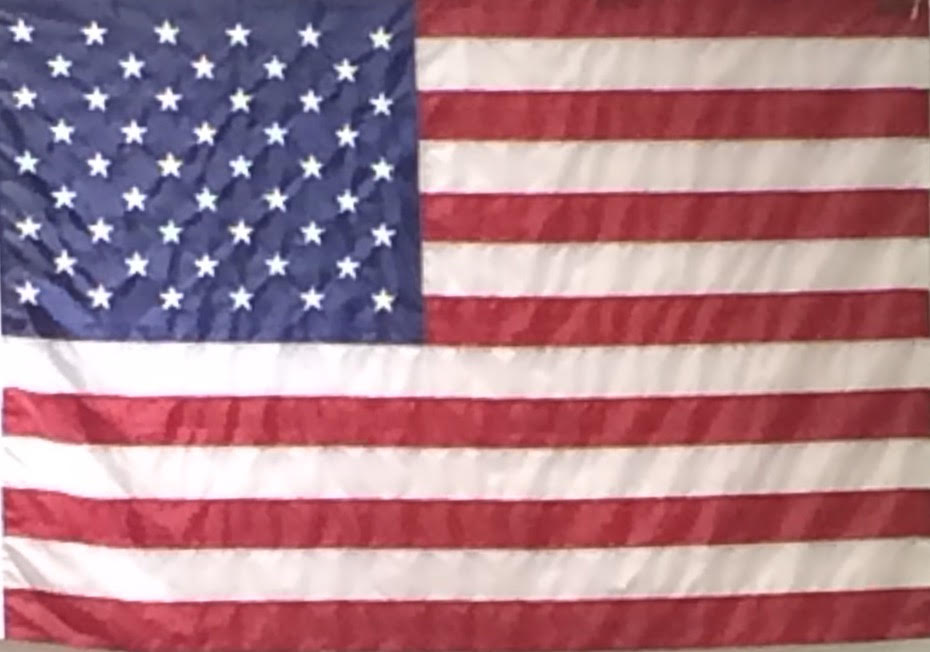
This is the flag that inspired Francis Scott Key to write “The Star-Spangled Banner.” The flag, which flew over Fort McHenry in Baltimore during the 1814 battle at the fort, is a 15-star, 15-stripe garrison flag made in 1813 and loosely woven so that it could fly on a 90-foot flagpole.
This patriotic song, whose words were written by Francis Scott Key on Sept. 14, 1814, during the War of 1812 with Great Britain, was adopted by Congress as the U.S. national anthem in 1931. For many years before Congress made this choice, the song was popular and regulations for military bands required that it be played for ceremonies.
Though Key wrote the words during the British bombardment of Fort McHenry at Baltimore, the melody was an English tune well known in America by the 1790s. It was the music for a poem, “To Anacreon in Heaven,” written about 1780 as the official song of a British social and musical organization, the Anacreontic Society. In fact, Key had used the music in 1805 to accompany another poem he wrote to honor Commodore Stephen Decatur.
Key Detained While Negotiating
Key was a well known 34-year-old Washington, D.C., lawyer-poet. The British had captured Washington and taken William Beanes, a physician, prisoner. They were holding him aboard ship in their fleet off the Baltimore shore. Friends of Beanes persuaded Key to negotiate his release. Key went out to the British fleet and succeeded in gaining Beanes’ release but, because the British planned to attack Baltimore at that time, both were detained.
During the night of Sept. 13-14, Key watched the bombardment of Baltimore from the deck of a British ship. Although rain obscured the fort during the night, at daybreak he could see the American flag still flying from Fort McHenry. The fort still stood after the British had fired some 1,800 bombs, rockets and shells at it, about 400 of them landing
inside. Four defenders were killed and 24 wounded. Key drafted the words of a poem on an envelope. The American detainees were sent ashore, the British fleet withdrew, and Key finished the poem and made a good copy of it in a Baltimore hotel the next day.
Poem an Instant Hit in Baltimore
According to some accounts, Key showed the poem to relatives of his wife in Baltimore who had it printed immediately and distributed throughout the city on a handbill, entitled “The Defense of Fort McHenry.” Within a couple of weeks, Baltimore newspapers published the poem. It gained instant popularity and was renamed “The Star-Spangled Banner.” An actor sang it to the popular British tune at a public performance in Baltimore.
Only with the start of the Civil War did “The Star-Spangled Banner” become a nationally popular song. During World War I, a drive began in Congress to make it the official anthem of America’s armed forces. There were other contenders for the title, including “America the Beautiful” and “Yankee Doodle.” Maryland legislators and citizens were among the most active groups and individuals who pressed to get Francis Scott Key’s words and accompanying English tune ratified into law as the country’s first national anthem. That finally happened when President Herbert Hoover signed legislation on March 3, 1931.
The anthem has four verses, each ending with the line, “O’er the land of the free and the home of the brave.”
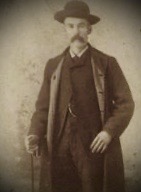
John Henry “Doc” Holliday (1851-1887)
Tombstone Arizona, had a man for breakfast every morning
In the Wild West one Doc’s temper was worth heeding as a warning
The local Gazette would tell you “The Town was Too Tough to Die”
Holliday said, “This is funny” his last words on the day he died
Born August 14, ’51 in Griffin Georgia, Baptized on a Sunday in March
Expecting his demise disease had taken his life halfway in mid arch
In November of ’87 at thirty-six, Holliday left on Death’s Stagecoach
He lies in the Glenwood Cemetery in Colorado, beyond reproach
Doc’s mother died of Consumption he grieved without compunction
Being close to his loving mother he also caught her Consumption
Like a character in a tragic dramatic play was John Henry Holliday
He was fifteen years old when his mother Alice Jane passed away
This tragedy helped shape the rest of his life for all of his born days
Finishing college in PA. he scheduled medical visits without a delay
In ’72 he graduated a Dental Surgeon with a hacking of Tuberculosis
To his misfortunes that day were added the worst Doctor’s diagnosis
Doctors said to prolong your life just for a day or a month or so
He had his dentistry practice a short time already it was time to go
Best you take a trip to a dryer climate out West are our best guesses
He became a frontier vagabond the Railroad ended in Dallas Texas
In the weekly Dallas Herald, he had a gunfight was the news report
His natural ability at gambling turned to be his sole means of support
Neither Austin nor Doc were hit it seems bad aims both were using
To all the Dallas Town folks’ their silly gunfight was highly amusing
“He was the most skillful gambler” playing with those of fewer brains
Doc, Wyatt, Bat, and Jesse James had to carry both guns and canes
Holliday fastest with his six-shooter also carried a deadly long knife
Doc a frontier gambler by profession always had to protect his life
Feelings ran hot in the Territory Doc was always forced to flee
His next stop was Jacksboro just a little ahead of a trailing posse
Jackson was a tough cow town close by a United States Army Post
In Jack’s county he was dealing Faro the job that he loved most
Three more fights in short time Doc became an expert with a weapon
Out of three gunfights he left one man to his credit dead and gone
Gold in Dakota Territory he was in Deadwood, Denver and Cheyenne
He was fine until that summer day and the soldier of Fort Richardson
In the summer he killed a soldier stationed at Fort Richardson
Bringing on the U.S. Government smack dab into an investigation
If caught they’d have a rope party to trouble Doc was no stranger
Trailed by the U.S. Army, U.S. Marshals and The Texas Rangers
He drifted through Wyoming, to New Mexico and then back to Texas
He met Big Nose Kate her generous curves were in all the right places
He was dealing at John Shanassey’s She needed no Sporting Houses
A working madam tough, high spirited, stubborn and She’s fearless
A Newspaper reporter asked him if his killings got to his conscience
Do not rile my temper Sir and you’ll have to cease your nonsense
Earp said, “ The nerviest fastest deadliest man with a six gun I know”
Holliday said no “I coughed that out with my lungs many years ago”
History claims Holliday was fast handed with his two pistols to help
His accuracy was less than perfect he only grazed White on his scalp
He shot Allen in the arm he missed Austin entirely and that is a fact
The Oriental Saloon in Tombstone not to lose count or to lose track
Milt Joyce was shot in his hand Bartender Parker the toe of his foot
He did kill Mike Gordon in‘79 he flared with Johnny Ringo to boot
He said to Ringo, “All I want of you is ten paces out in the street”
Doc was always wanted there was no murder charge he couldn’t beat
An unusual Wild West character fluent in Latin and played the piano
Dressed with a diamond stick pin in his tie for his neck was so narrow
I find him a loyal friend good company and a caustic wit but sound
A Southern Gentleman whom disease has made a frontier vagabond
Morgan left from Montana Wyatt and James came down from Dodge
Virgil left from Prescott in Tombstone Arizona, they would converge
Holliday in Prescott was having a good run at the gambling table
Doc met Big Nose Kate in Prescott he can be on his way soon as able
In Texas nicknamed Big Nose Kate she had one hell of an attitude
Attractive with a prominent nose A Dancehall Girl and Prostitute
Kate and Doc on their way to the boom Tombstone were a rambling
In ’80 Doc was toting the $40,000 he had won in Prescott gambling
Kate was good company for the Doc she was happy to be with him
Kate was first to notice there was a booming opportunity for sin
She purchased a large tent filled it with barrels of whiskey and girls
Kate had the first ‘Sporting House” in Tombstone with little frills
Old man Clanton’s outlaw gang in Tombstone had things their way
Until the arrival of Virgil the Earp brothers and their friend Holliday
The Clanton boys, Ike, Phin and Billy the McLaury’s, Frank and Tom
They joined Curly Bill and Johnny Ringo and terrorized the Town
For the Earps, Holliday the gunman added salt worth good measure
The Cowboy Faction Showdown with the Earps, and Doc a pleasure
The Lawmen had a reputation, Doc a famous gunman of the time
The Cowboy’s showing their bravado met under the OK Corral sign
In October of ’81 at the OK Corral three men lay dead in the street
Speculation and hearsay says Doc Holliday had one bullet for each
After the OK Corral gunfight Doc back in his room said a mouthful
All he could say about the “Damned Day” “That was awful…awful”
Wyatt’s brother Morgan was assassinated his maker soon to meet
Wyatt tracked Stillwell to Tucson Station his death was in his reach
Virgil Earp said Doc was first to report as he saddled up his horse
On Earps’ vendetta ride four men died Holliday by his side of course
A tough desperado named Billy accustomed to having his own way
He sat down to play some hands of poker at Doc’s table one fine day
He kept picking up discarded cards to the rules of poker wasn’t right
Without showing a hand Doc raked in the pot now fixing for a fight
Billy showed his six-gun he brought from beneath the gambling table
Before he fired Doc disemboweled him with a long knife, he was able
Obviously attempting to protect himself he felt he did the right thing
After he turned himself in Town vigilantes were looking for a hanging
In an attempt to rescue Doc, Big Nose Kate had to think and act fast
She set a fire in an old wooden shed to cut the Town off at the pass
The whole Town was going up in flames as the fire began to spread
In the clamor all the townspeople rushed to a fire that they dreaded
The only ones not at the fire were Kate, Doc and his jailhouse guard
Confronting the lawman with two pistols convincing him wasn’t hard
They hid in the bush ‘til morning, on “borrowed horses” on to Dodge
Registered in Cox’s boarding house as Dr. and Mrs. Holliday at large
Back in Dodge, Doc owed Kate for saving him from the Hanging Tree
Kate gave up prostitution and Doc his gambling, but it was not to be
All the good intensions didn’t last long they respectfully said Amen’s
Kate needed the excitement of Dance Halls Doc the Gambling Dens
Big Nose Kate headed for the bright lights destined to split up again
Doc was back to dealing Faro in the “Long Branch Saloon” but then
Texas Cowboys on a cattle trail sent word they had Wyatt with them
Doc went to the rescue the Texas wild bunch intended to shoot him
Morrison and Driscoll had cocked pistols they were ready to fire
They were goading Wyatt to draw his gun encircled by twenty riders
Holliday let fly volumes of profanity got the best of the Cowboy Sons
Colt’s long barrel knocked Morrison down he took the Cowboys guns
Wyatt would never forget the night Doc saved his life in Dodge City
No cards with gun in hand leaped through death’s circle it was pretty
Kate and Doc quarreled Doc didn’t deal well with the fight they had
He saddled his horse headed toward Colorado to the town Trinidad
After arriving a young gun named Kit Colton wanted a reputation
Doc took a look at the kid said he will be with him after a libation
Out in the street two shots rang out the kid laid dead in the dust
He headed out west to Las Vegas New Mexico, Trinidad was bust
Bat Masterson said, “Doc Holiday was afraid of nothing on Earth”
He would step aside for no man being condemned to a slow death
He truly expected a quick painless demise caused from a violent life
This hot-tempered Southern Gentleman was never far from strife
Heading to Apache County Colorado stopped a short spell in Pueblo
Leadville, Georgetown, Central City with three more dead guns to go
In Denver he was Tom Mackey no one knew except for one bad habit
Dealing Faro near cut off Bob Ryan’s head mangled him at Babbitts’
Holliday met up with Wyatt Earp on the trail of Dave Rudabaugh
They rode out from Dodge close on the tail of the Train Robber now
Wyatt never spoke of Doc’s stable reputation as a cold-blooded killer
They became the best of friends because he was a good Poker dealer
The final days in Doc’s life he lived out in Glenwood Springs Colorado
Healing waters sulfurous fumes curative powers and a whisky bottle
Amused looking at his bootless feet “One more whisky” he coughed
“This is funny” who would have thought I’d die with my boots off.”
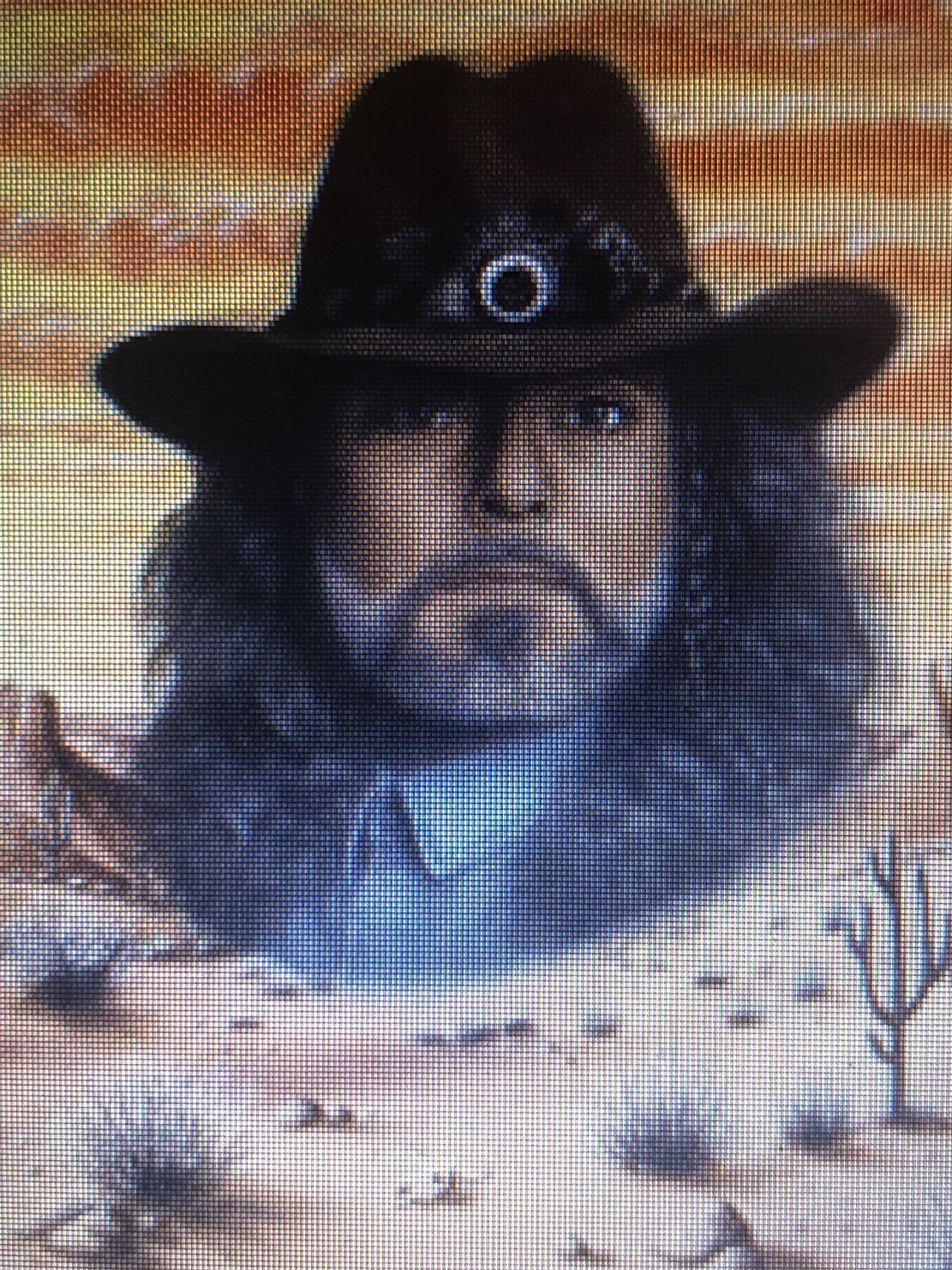
Chuck Levin (VFA)

Portrait Artist: Ricardo Garcia